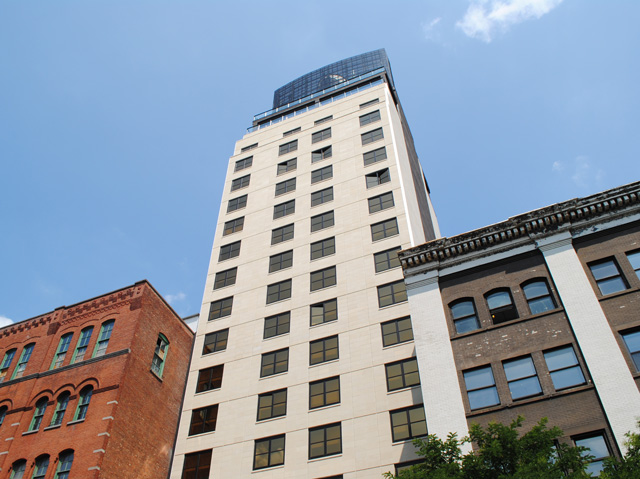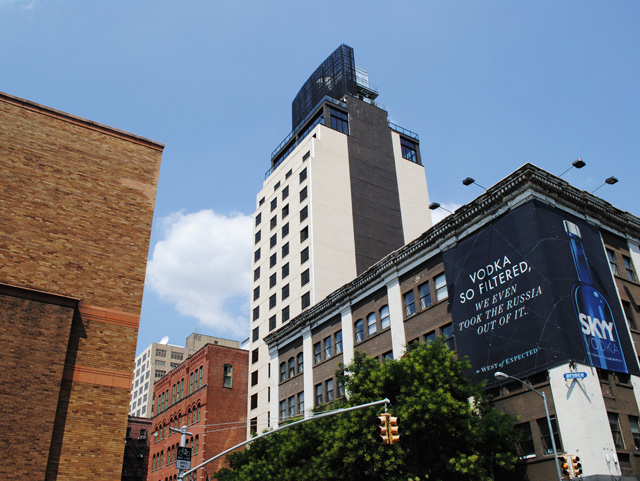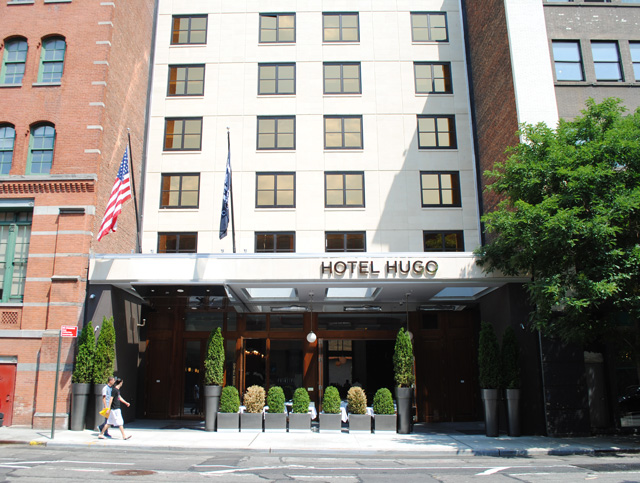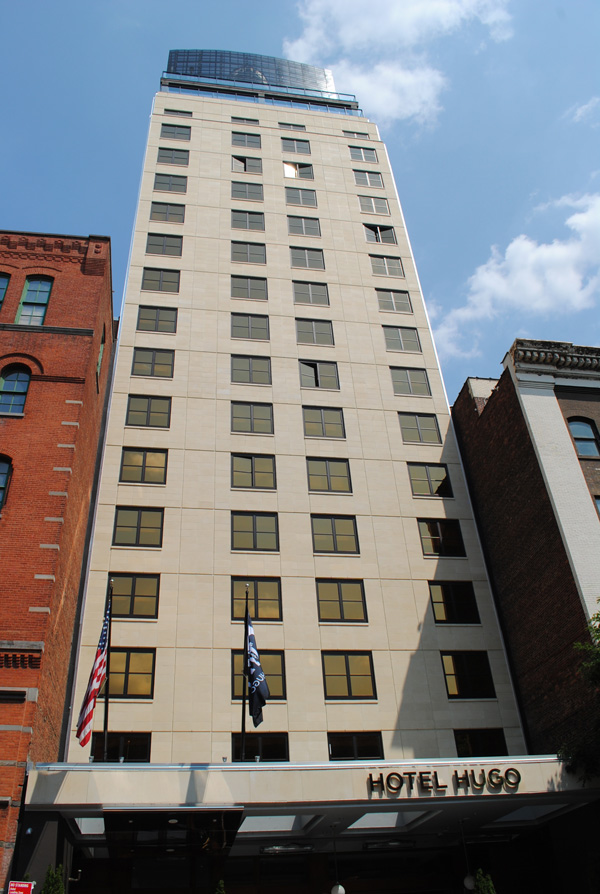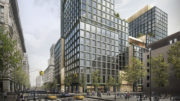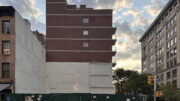Hotel Hugo has been open since April, and YIMBY stopped by the other day to check out the completed project at 525 Greenwich Street.
The hotel is of the same mold as the skinny budget hotels that have been sprouting like weeds in hot neighborhoods like the Garment District and Sunset Park, where housing is not allowed. While Hotel Hugo offers comparably-priced rooms, the design’s execution by Los Angeles-based Italian architect Marcello Pozzi is far superior, with casement windows and a clean, modern façade, unsullied by PTAC grills.
It’s an improvement on the earlier Hotel Indigo in Chelsea, also developed by Morris Moinian’s Fortuna Realty, which had a more traditional red brick-and-masonry design. 525 Greenwich offers a model for developers keeping Peter Poon and Gene Kaufman busy with projects, showing that affordable hotels don’t have to look terrible.
Hotel Hugo does, however, emulate one feature of the McSam-style hotels: the set-back and broken street wall. As with so many buildings in New York, this feature was designed by the zoning code, not the architect or developer.
Because of hotel developers’ desire for consistent, shallow floor plans and the zoning code’s prohibition on tall street walls, architects – whether they’re Peter Poon or Marcello Pozzi – are given no choice but to set the buildings back from the sidewalk. Until planners rethink their sky exposure plane and tower rules, this is likely how all but the most luxurious hotels will continue to be designed in New York City.
In any case, this may be one of the last hotels in Hudson Square for a while. The area, including 525 Greenwich, was rezoned for residential use last year. Where allowed, apartments are always highest and best use in New York City, and the hotels of the old “M”-zoned Hudson Square are now giving way to luxury condos.
525 Greenwich will almost certainly be the last large budget hotel in the neighborhood. As appears to be the pattern for new rezonings, future hotels in Hudson Square with more than 100 rooms (Hotel Hugo has 122) will require a sign-off from the City Council – something developers are unlikely to get without using more expensive union labor, which translates into a pricier final product.
Talk about this topic on the YIMBY Forums
For any questions, comments, or feedback, email [email protected]
Subscribe to YIMBY’s daily e-mail
Follow YIMBYgram for real-time photo updates
Like YIMBY on Facebook
Follow YIMBY’s Twitter for the latest in YIMBYnews

